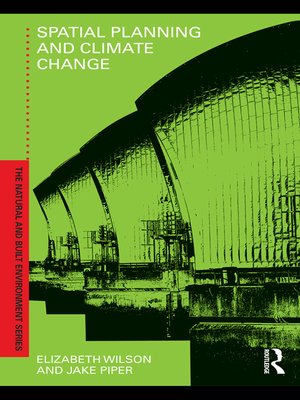Spatial Planning and Climate Change
ebook ∣ Natural and Built Environment Series
By Elizabeth Wilson

Sign up to save your library
With an OverDrive account, you can save your favorite libraries for at-a-glance information about availability. Find out more about OverDrive accounts.
Find this title in Libby, the library reading app by OverDrive.



Search for a digital library with this title
Title found at these libraries:
| Library Name | Distance |
|---|---|
| Loading... |
Spatial planning has a vital role to play in the move to a low carbon energy future and in adapting to climate change. To do this, spatial planning must develop and implement new approaches.
Elizabeth Wilson and Jake Piper explore a wide range of issues in this comprehensive book on the relationship between our changing climate and spatial planning, and suggest ways of addressing the challenges by taking a longer-sighted approach to our preparation for the future. This text includes:
The authors take an evidence-based look at this hugely important topic, providing a well-illustrated text for spatial planning professionals, politicians and the interested public, as well as a useful reference for postgraduate planning, geography, urban studies, urban design and environmental studies students.







